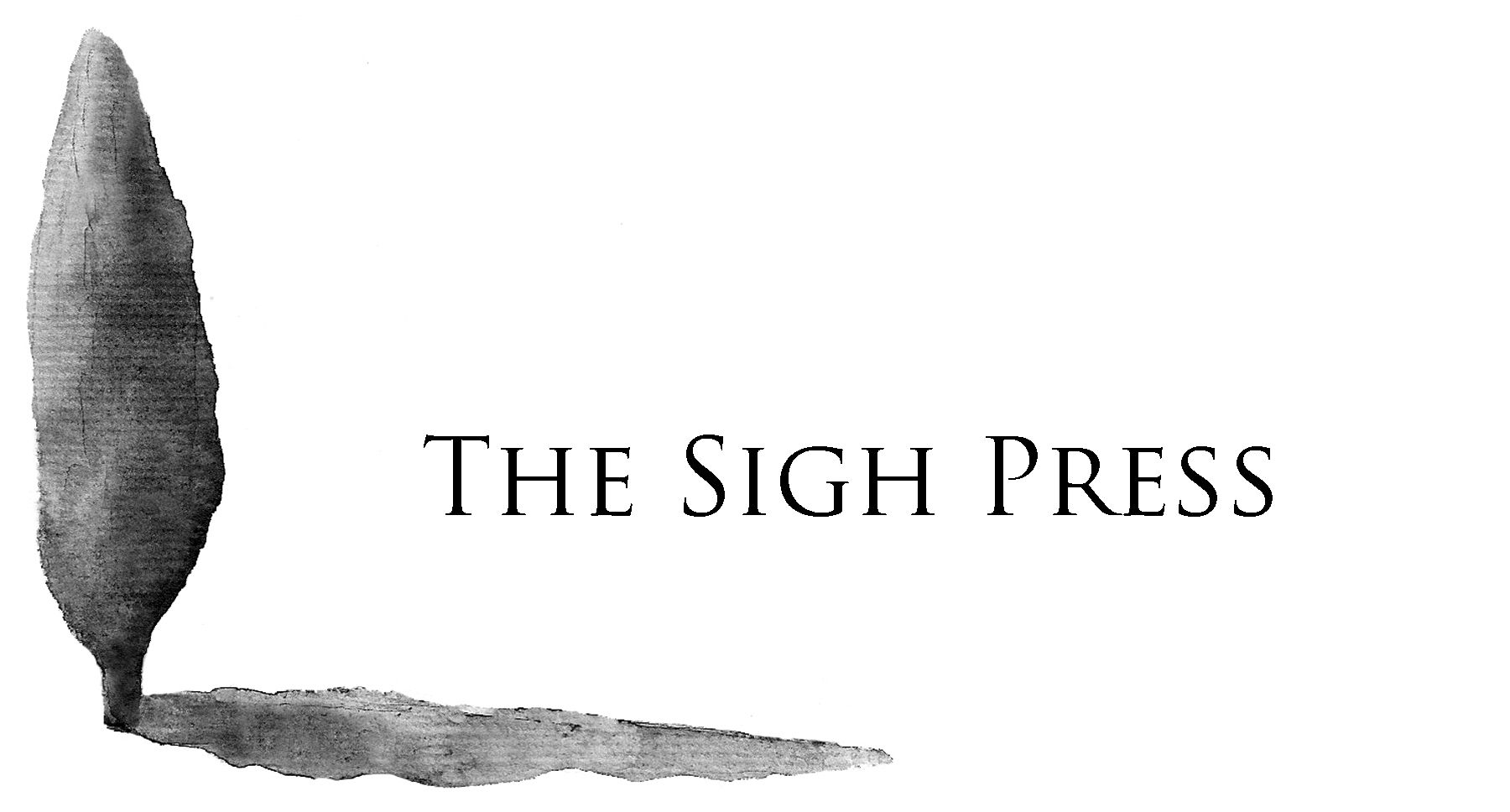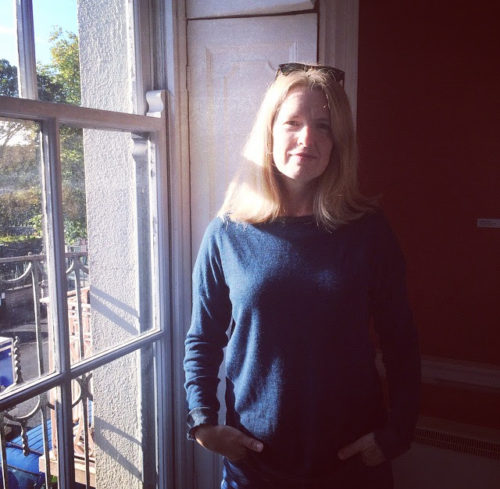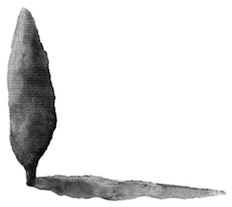Welcome to another interview in the Ampersand series: interviews with writers from all over the world who have a connection to Tuscany.

Ampersand 3
We are pleased to announce our third Ampersand Interview with Irish author Paula McGrath. In October, Paula spent time in Florence as Florence Writers Writer-in-Residence at the Saint Mark’s Cultural Association, having been selected for the residency by the Irish Writers Centre. During her time in Florence, Paula held a writing workshop at St. Mark’s and shared her work with a reading from her 2015 novel, Generation.
We hope you’ll enjoy the thoughtful answers that follow. And you can look forward to an excerpt from Paula’s forthcoming book, A History of Running Away, in our next journal installment, Issue 11 Winter 2016, which will publish in December.
Mundy Walsh & Lyall Harris, Editors

Paula McGrath lives in Dublin. Her first novel, Generation, was published in 2015. Her second, A History of Running Away, is forthcoming in 2017. She has a background in English Literature and is currently a doctoral student at the University of Limerick. In another life she was a yoga teacher.
What book (not written by you) comes closest to capturing something about you? What is this aspect?
I grew up on a farm in County Kildare, surrounded by beech and lime and chestnut trees, in which I climbed, and swung, and read my books. There was also a wood nearby where I spent many hours wandering and daydreaming. I live by the sea now, and find it hard to imagine ever living inland again, yet it’s among trees and woodland that I am most properly in my element.
I was spellbound from the moment I opened Enid Blyton’s The Magic Faraway Tree; I found it while sleeping over at a friend’s house, and I remember sitting up in bed, in her pink room, literally holding open my eyelids so that I could get it finished before going home the next day. Trees whispering to each other; children climbing to the top and into lands in the clouds; actually living in a tree. . .
Unsurprisingly, one of my all-time favourite adult books is Italo Calvino’s The Baron in the Trees. Set in seventeenth century Italy, its protagonist, Cosimo, of noble birth, climbs into a tree at the age of twelve, and he remains in his arboreal kingom for the rest of his days. His tree-top perspective affords him a unique perspective on life, which Calvino uses to explore philosophical questions and ideas. It’s my kind of book: makes me think, and engages my imagination. It’s one of very few books that I reread – I’ve even read it aloud to my husband – and the aspect it captures, to finally answer your question, is my deep desire to live in nature, at one with nature, ‘off the grid,’ free.
I tried moving back to Kildare to live an eco-friendly life, but the native woodland I attempted to plant – holly and rowan and hazel, bluebells for my woodland floor – was thwarted at every turn. Trees died, or were cut down by over-exuberant male scything, and I couldn’t seem to persuade anyone that the briars and robin-run-the-hedge and nettles were planned. We moved back to Dublin for various reasons, and when last I drove past the house, what remained of my woodland was a handful of well-spaced trees, gracing a tidy front lawn. The city suits me and my family. I love being able to walk by the sea, and take the kids to the beach any old time. But every now and then, I take a surreptitious peek at treehouse porn, and imagine myself living a leafy life among the trees.
What is the biggest personal obstacle you have to overcome in order to write?
If the question had been written in a different tense, I would have a long list, from having nothing to say, to not having the techniques and skill, to self-doubt, to the infamous anxiety of influence. I had all the reasons why I couldn’t write, and, beyond a few fits and starts, I didn’t write.
Until, one day, I realised that there was some urgency to it; if I didn’t get serious about writing now I would have to forget about it. I made it my business to amass a toolkit, finding resources in books, courses, online, and in writing groups. More importantly, I made the crucial leap in understanding: to be a writer, I had to write, seriously and steadily, and there was no way around it.
These days, I might be short on time sometimes, but there are no real obstacles. Even on the days when I know with certainty that there are too many books in the world, and the best ones have already been written, the writing habit is sufficiently ingrained to drag me to the desk. And, to paraphrase Dorothy Parker, nothing beats the feeling of having written.
It has been said that artists pursue one question in different ways throughout their work. Would you say this is true of your writing? If so, what is your question?
I haven’t written enough books yet to know if this is true. I hope not, because that might get boring, but I’m beginnning to suspect that it might (see question 5).
Tell us something that few people know about you.
My confirmation name.
You have a deep interest in yoga. Can you describe something sepcific in your writing or creative process that you can attribute to your yoga practice?
This is a difficult question for me because, during the nearly 20 years I practiced, taught and studied yoga intensively, I hardly wrote at all. Conversely, during the 8-10 years I’ve been writing seriously, my yoga has declined; I no longer teach, and while I still maintain a practice, the days of getting up before six and sliding into splits both ways before breakfast are – for now at least – a thing of the past. I’ve puzzled a lot about this: was the inherent creativity of yoga enough to satisfy the impulse to create art? Must the two be mutually exclusive? If so, which is the nobler pursuit?
The lifestyles are very different. Yogis are careful about what they eat and drink, because eating late, or too much, or drinking alcohol or stimulants, is not conducive to practice. The body would be sluggish, and the practice unsatisfactory, where nothing flows. Writers, though, are not historically synonymous with clean-living, and it was a revelation to discover that I can eat late, or have a couple of glasses of wine, or stay up past midnight, and the writing flows just fine. In fact, sometimes that fug- state after a bad night’s sleep is actually conducive, maybe because it’s close to the dream-state (this does not apply to editing, though).
If there is a common denominator between yoga and writing – and I’m not just forcing one in to make my life look less schizophrenic – it is the interconnectedness of things. The system of yoga was developed to unite the individual consciousness with the universal, as outlined in Patanjali’s Yoga Sutras, compiled around 400 CE. It’s there in the very etymology of the word yoga, which means to unite or yoke.
Recently – and this is also in answer to question 3 – I have noticed that my novels could all be read as attempts to draw attention to this interconnectedness, and our blindness to it. In Generation, characters from different parts of the world, at different times in history, are linked in ways that are only available to the reader to see. In my forthcoming book, A History of Running Away, three young women, different generations of the same family, echo each others’ lives, again in ways only the reader can see. And now the same theme is emerging in my novel-in-progress. My character’s interests are plants and bees, and we all know how the two are connected, and how our very existence depends on this interconnection. But here we are, at the top of the foodchain, the geniuses with the opposing thumbs, allowing our greedy, lazy natures to sabotage our very existence through damaging farming practices.
Am I writing an eco-novel? I don’t think about it consciously while I’m writing, but when I have written, I can see the environement was on my mind all the same. How can it not be, when we now know all life forms on our planet are inter-dependent? (Yes, climate deniers and isolationists, we are.)
And yogis understood this long before science started catching up. A fascinating book of essays on the subject, Ancient Wisdom and Modern Science (1984), illustrates the fundamental unity underlying all of humanity and the material world. Its essays show how developments in astronomy, physics, biology, medicine, information and systems theory, and others, show that science’s understanding of human nature and the universe ‘increasingly resembles that of the ancient and Eastern spiritual philosophies (such as) the different systems of yoga. . . It seems that we are approaching a phenomenal synthesis of the ancient and the modern and a far-reaching integration of the great achievements of the East and the West that might have profound consequences for the life on this planet.’
You have completed an MFA in Creative Writing and are now about to start a PhD. You’ve said graduate degrees could be considered a luxury rather than an essential step. What parts of the graduate programs fit into the luxury category? What about them is dispensable? By contrast, in what key ways do you think your higher degrees have influenced (and will) your writing?
Here’s the truth, and it’s ugly: no one wants to read your early drafts. Not your friend, not your partner, not your mother – no one. When you join a writing group, the understanding is that in return for reading their stuff, they have to read yours. This is what it means to do an MFA. A group of like-minded, similar-stage writers will read your work, and because they want to know how to improve what they’re writing, they will tell you what they think you can do to improve yours – kindly, if you’re lucky. Even more helpful, and more of a privilege, is the feedback you get from professionals who have been doing the job far longer than you have. The MFA is like using the carpool lane; you get there faster than you can when you’re on your own. For someone like me, who’s already had another career, and who is now in a hurry, the MFA has much to recommend it.
But like most luxury items, writing degrees are expensive, and only the fortunate can afford them. Luckily, they’re completely dispensable. Even if you’re in slower moving traffic, you can still get there on your own, or with the support of a writing group, and the many resources available online and through courses.
I believe that the production of a worthwhile piece of art requires study, research, and constant, rigorous interrogation. These requirements can be met either within the academy, as was the case with my first (published) novel, or without, as with my second. The PhD, and to a lesser extent the MFA, provides intellectual engagement and stimulation which feeds into my writing and, I hope, enriches it.
Tell us something that recently struck your funny bone or share your favorite joke.
I like this Christmas cracker joke so much that I put it in my forthcoming novel: What did the inflatable teacher at the inflatable school say to the inflatable child caught holding a pin? You let me down, you let your friends down, you let your school down, but most of all, you let yourself down.
If you could shout something from a mountaintop, what would it be?
Repeal the 8th! The 8th Amendment grants rights to a foetus equal to those of a pregnant woman. It has shown itself, in controversy after controversy, to be a dangerous, inadequate piece of legislation which leaves medical professionals in a legal limbo, preventing them from doing their job, and denies women the right to control what they do with, and what is done to, their own bodies.
If you’d like to read the original pdf of this interview or read previous issues, please go to the Ampersand page.

© 2016 THE SIGH PRESS
None of the work published by The Sigh Press may be copied
for purposes other than reviews without the author and artist’s written permission.